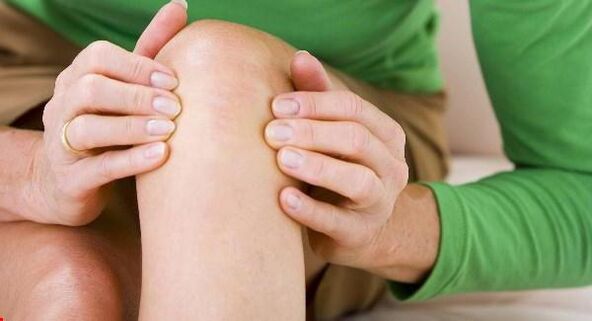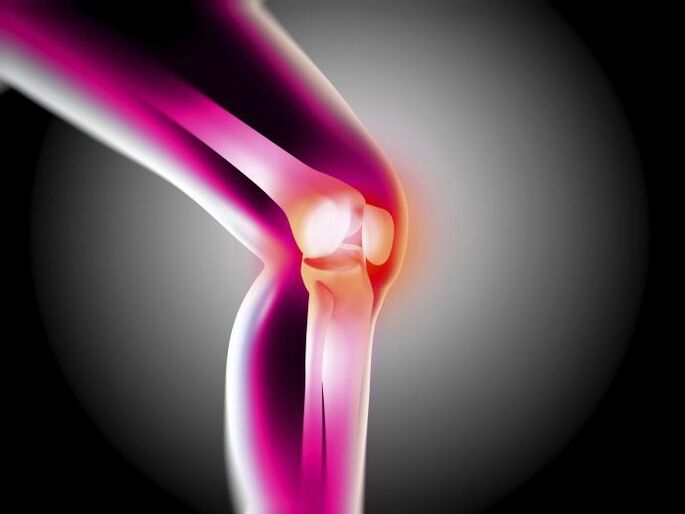Today we will talk about effective methods of treating arthritis, arthrosis. Is there a difference between these diseases? What are the symptoms and causes? These questions torment many people. After reading this article to the very end, you will know which doctor to go, what are the ways of getting rid of pain and treating the disease at home. It is very important to note that many turn to specialists with joint problems in a very neglected state. Do not try to yourself at home on your own, and at the first symptoms you need to go to the hospital. Let's start our article with how arthritis differs from arthrosis. We offer to consider the diseases separately and draw conclusions.

Arthritis
Arthritis and arthrosis, the treatment of which we consider, are very close diseases regarding symptoms. In both the first and second cases, we observe the pathology of the joints, which is accompanied by a number of unpleasant symptoms (soreness, limited movements, and so on). Signs of arthritis and arthrosis are very similar, but there is the main difference:
- arthritis - inflammation;
- Arthrosis is destruction.
In both cases, we are dealing with the consequences of a disease, only an experienced doctor can make a diagnosis after a complete examination of the patient (for example, reactive arthritis, osteoarthrosis, and so on). In this section, we will pay maximum attention to arthritis. Do your knees hurt, the joints deformed and increased in their size, walking is accompanied by severe pain, and a crunch appeared in the knees? Urgently go to the hospital, these symptoms may indicate the presence of arthritis. This medical term translated from the Latin language means lyomota in the joints. Arthritis is understood as a set of joints of the joints. The main sign of the disease is pain, especially with physical exertion. Arthritis can characterize more than a hundred rheumatoid pathologies, also amazes:
- fingers;
- elbows;
- knees;
- ankle joints;
- hip joints;
- spine.
As already mentioned, arthritis modifies joints, in addition, the functions of some organs may be impaired:
- hearts;
- liver;
- kidneys.

There are cases when arthritis is a serious threat to human life. The sooner you turn to a specialist for help, the more favorable the prognosis of treatment. If you believe statistical information, then several tens of millions of people suffer from the disease. An annually the figure increases significantly. The most susceptible to the development of arthritis people who have reached sixty -five years. However, due to the fact that the lifestyle of young people is very far from the ideal, young people are increasingly suffering from the disease more and more often.
Types of arthritis
Arthritis, arthrosis - joint diseases that are very close in symptoms. However, as already mentioned, neither arthritis nor arthrosis are considered a diagnosis, since there are many varieties. Now we will single out the main types of arthritis and describe them a little. The most common forms are:
View |
Characteristic |
Rheumatoid |
It affects the disease of small joints. The reason is definitely not determined, but doctors are inclined to infectious nature. The basis of manifestation is dystrophic and pathological changes in the connective tissues of the joint. The most common symptoms: weakness, reduced appetite, poor joint mobility in the morning, pain, edema, elevated temperature of the skin. This species has a stages of exacerbation and remission. If the disease progresses, then irreversible deformation of the joints, cartilage fabric occurs. In addition, the load on the tendons increases, which leads to their stretching |
Septic |
This is the result of any infection in the body, when microorganisms penetrate the joints. Symptoms include: high body temperature, muscle pain (next to the affected joint), headaches, edema and so on.  Given the fact that the cause is an infection, then this species applies to children. It is important to note that in children the symptoms are more pronounced. The following joints are affected by the disease: knee, shoulder, hip joint, lower back, that is, those that are more loaded. In the presence of the slightest suspicion of this type, you should immediately consult a doctor to prevent irreversible changes in the structure and joint functions |
Reactive |
This is a non -inflammation of the joint bag. It is very important to note that young people are subject to the disease. Why? Reactive arthritis is the consequences of gastrointestinal diseases or reproductive systems, and men most often suffer from an ulcer of the stomach. The disease can develop gradually, but there are cases when the symptoms appear sharply. Localized the disease on the arms, legs. Symptoms include: weakness, elevated body temperature, headache, inflammation, aching pain, visual impairment, digestive disorders and so on. The first manifestations last about two months, then follows the stage of remission. A distinctive feature of this type is the pain that occurs when relaxing. If you are inactive, then the consequences can be very different, such as eye cataracts. Treatment is carried out by antibiotic courses up to two weeks |
Gouty |
This variety of arthritis is a signal about disorders of the exchange process in the human body, an increased content of salts, and uric acid accumulation. The gouty arthritis of the hands and the ankle joints affects the gouty arthritis. In the risk zone, people who have reached the age of forty, as physical activity decreases, changes in the body occur. It is very attentive to be persons who suffer from diabetes, obesity, hypertension. Provocateurs - alcohol, fatty and protein foods. Symptoms include severe pains, a change in skin color, an increase in body temperature, the temperature of the skin, the deposition of salts on the joints, which leads to seals. If the disease is not treated, then attacks will appear more and more often, and the disease itself will begin to attack neighboring joints |
Psoriatic |
This type is a consequence of skin and nail diseases. According to statistics, then ten percent of all cases falls on psoriatic arthritis. In addition, stresses, anti -inflammatory drugs, drugs from hypertension, and so on, can serve as reasons. Symptoms include pain, reddish skin and psoriasis. The consequences of inaction can be as follows: joint deformation, its loss, operation |

Now medicine can provide a decent standard of living for people even at old age. And this despite such a variety of diseases of the musculoskeletal system. It is necessary to consult doctors in time for diagnosis and treatment.
Symptoms of arthritis
Now briefly list the symptoms of arthritis:
- redness of the skin in the area of the inflamed joint;
- weakness;
- weight loss;
- loss of appetite;
- increase in body temperature;
- increasing skin temperature in the lesion;
- pain;
- chills;
- irritability;
- aches;
- swelling;
- deformation;
- Restriction of movement and so on.
What about the treatment of arthritis and arthrosis? Which doctor is treating these diseases? If the joint pain appears, you must contact the therapist. He will make a small survey and write a referral to the right specialist. Depending on what type of disease, the services of a surgeon, orthopedist, rheumatologist, traumatologist, arthrologist, and so on, may be needed. Please note that it is quite difficult to find the last specialist, as a rule, they are reception in paid clinics.
Causes of arthritis
In this article, we consider arthritis and arthrosis: causes, prevention and treatment. Now we will pay a little attention to the reasons for arthritis. This disease has been constantly studied for many years, but doctors could not give an exact answer to this question. However, they still distinguish a number of factors that lead to the development of arthritis. These include:
- allergy;
- metabolic disorders;
- Nervous system failure and so on.
The reasons have a number of features:
- pathogenic microorganisms penetrate the body through skin injuries or oral cavity; Of course, protective barriers are included, with the slightest failure of which the infection attacks the weakened zone;
- Often the disease is observed in athletes who overload their body (weightlifters suffer most); The same applies to masseurs, which are greatly wrapped during work;
- Excess weight is the cause of the joints of the joints, so that the large weight of the body threatens with arthritis and so on.
Complex treatment of arthritis

With arthritis, arthrosis is simply necessary. They are prescribed by the therapist when first contacting a medical institution with this problem. We will talk a little later about arthrosis, we will consider the treatment of arthritis in this chapter. The first thing therapy is aimed at is to eliminate the causes of the disease if arthritis has an infectious, allergic or gouty nature. The second is pathogenic therapy that performs a number of functions:
- normalization of metabolism;
- correction of immunological reactivity;
- elimination of inflammation (this can be achieved in three ways - medicines, physiotherapy, resort treatment);
- Restoring the joints with massage, acupuncture and so on.
Based on everything that was said, we can conclude - arthritis is a disease that requires an integrated approach. Only an experienced doctor can prescribe treatment, because it is individually for each person.
Traditional medicine in arthritis therapy
The treatment of arthritis and arthrosis is quite common with folk remedies, because people do not want to visit medical institutions for a number of reasons. Of course, you can add "grandmother's" recipes for the main therapy that the doctor prescribed. But to fully engage in self -medication and wait for arthritis to disappear from the lotions. For home treatment of arthritis, gelatin, apple vinegar, soda, ice and hydrogen peroxide are used. Now briefly about the most common funds. Tincture on gelatin: 2 tsp. Gravel of gelatin, 100 ml of warm water, 100 ml of juice. Pour gelatin at night with water, and pour juice in the morning, mix well and drink. The duration of the course is 30 days. The next method is not suitable for people who suffer from stomach problems. 1 tsp. apple cider vinegar, a glass of water. Mix everything and drink before meals (you can’t eat for half an hour). You can use this tool up to five times a day. For the next method, you will need a quarter of a teaspoon of soda and a glass of warm water. Mix the ingredients and drink a quarter of an hour before eating. If you are not 40 years old, then there are enough two tricks per day, otherwise use the means three times a day. After 3 days, increase the soda content to the tablespoon.
Arthrosis
So, what is the difference between arthritis and arthrosis? Now you can find out the answer to this question. We offer to talk about arthrosis now. This disease is reflected in the destruction of the cartilage tissue of the joints. According to statistics, then eighty percent of the population of our planet suffer from this ailment. With prolonged development of the disease, a change and restructuring in the joints occurs, and as a result, an inflammatory process appears. The consequence of this process is the degeneration of tissues located near the joints. The difference between arthritis and arthrosis is as follows:
- Arthrosis is a damage to the joints;
- Arthritis is an inflammatory disease of the whole organism as a whole (as a rule, other organs suffer - liver, kidneys, heart, and so on).
Varieties of arthrosis
The most common types of arthrosis:

View |
Characteristic |
Coksartrosis |
This species affects the hip joints, while both men and women suffer from the disease after forty years. It is very important to note that the disease can develop on one or two hips at once |
Gonartrosis |
This type of exclusively knee joints of the elderly is striking. Honartrosis is distinguished by its strong pain symptoms, which are difficult to eliminate. |
Osteoarthrosis |
This is the arthrosis of the foot. According to statistics, seventy percent of cases of arthrosis falls on this species. The arthrosis of the foot is manifested in the form of a disorder of the sliding between the cartilage and the bone, which as a result leads to disability |
Interphalanal |
This disease is a subspecies of ankle arthrosis. It is distinguished in a separate group, since it affects only the small joints of the toes. Interphalangeal arthrosis is a consequence of the lack of nutrient fluid in the joint of the toes |
Please note that the symptoms listed above appear in this sequence with the development of the disease. There are practically no external signs in the initial stages (small edema is possible, moderate pain on palpation), however, with the progression of the disease, curvature, increase, severe pain, and so on, may appear. Thus, the conclusions are as follows: arthritis and arthrosis are joint diseases (the first is caused by an inflammatory process, and the second is injuries and other diseases), symptoms and treatment are similar, but only an experienced specialist should prescribe the latter based on the individual characteristics of the body. All means of traditional medicine should be discussed with the attending physician.
Symptoms of arthrosis
The first signs of arthritis and arthrosis include discomfort during movement, pain in the joint, limiting the mobility of the affected area. In this section, you will learn about the most common symptoms of arthrosis. To these we can attribute:
- pain that intensifies at load;
- edema;
- crunch;
- discomfort;
- tight mobility after sleep or rest;
- night pain;
- pain "for the weather";
- limitation of mobility;
- lameness;
- joint deformation;
- increase.
Please note that the symptoms listed above appear in this sequence with the development of the disease. There are practically no external signs in the initial stages (small edema is possible, moderate pain on palpation), however, with the progression of the disease, curvature, increase, severe pain, and so on, may appear.
The causes of arthrosis
Arthrosis happens:
- primary (idiopathic);
- secondary.
The first species develops for no apparent reason, and the second is the result of the pathology in the joints. The causes of secondary arthrosis may include:
- injury;
- dysplasia;
- violation of metabolism;
- autoimmune disease;
- inflammation;
- endocrine system disease;
- increased joint mobility;
- hemophilia.
The following persons include the risk group:
- Elderly people;
- Persons with overweight;
- people who overload any joint (athletes, elderly people who are lame, use a cane and so on);
- persons who have undergone operations on the joints;
- People who are under the influence of toxic substances and so on.
Treatment of arthrosis
In the treatment of arthritis and arthrosis, tablets must be taken according to the scheme that the attending physician prescribed. In addition to drug treatment, emphasis is on massages, acupuncture, exercise therapy and so on. That is, both in one and the second case requires an integrated approach in treatment.
The treatment of arthritis, arthrosis should be prescribed only by an experienced specialist, because each patient needs a special approach. In the treatment of arthrosis, the doctor tries to prevent further deformation and return the functions of the joint. Therapy includes local and general events. In addition to exercise therapy, swimming, bicycle sports, special baths and many other procedures, medical treatment is necessary:
- reception of NSAIDs (non -steroidal anti -inflammatory drugs);
- the appointment of sedatives, muscle relaxants;
- intramuscular injections;
- rectal candles.
Reactive synovites involve the performance of puncture and the introduction of glucocorticosteroids. The introduction of the GKS should not exceed four times a year.
Thus, the conclusions are as follows: arthritis and arthrosis are joint diseases (the first is caused by an inflammatory process, and the second is injuries and other diseases), symptoms and treatment are similar, but only an experienced specialist should prescribe the latter based on the individual characteristics of the body. All means of traditional medicine should be discussed with the attending physician.



















